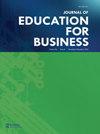Evaluating university E-assessment in Egypt: A teachers’ perspective
IF 1.3
Q2 EDUCATION & EDUCATIONAL RESEARCH
引用次数: 1
Abstract
Abstract COVID-19 forced educational institutions to work digitally. Universities were not prepared for online assessment during the lockdown. Teachers faced many challenges when assessing students online; they were afraid that they produced inefficient or fake results. This study aims to understand the factors that affect the efficiency of e-assessment from the teachers’ perspective. Many factors affect the e-exam efficiency, such as university readiness, educator readiness, plagiarism, cheating, type of assessment, and technical issues. Two hundred sixty-eight teachers were invited to fill in the questionnaire. This study concludes that university readiness, educator readiness, and type of assessment have a positive significant impact on e-exam efficiency, while plagiarism, cheating, and technical issues negatively affect e-exam efficiency Implications for practice are discussed.评估埃及大学电子评估:教师视角
COVID-19迫使教育机构开展数字化工作。在封锁期间,大学没有为在线评估做好准备。教师在网上评估学生时面临许多挑战;他们担心他们会产生低效或虚假的结果。本研究旨在从教师的角度了解影响电子评估效率的因素。影响电子考试效率的因素很多,比如大学准备、教育准备、抄袭、作弊、评估类型和技术问题。268名教师被邀请填写调查问卷。研究发现,大学准备程度、教师准备程度和评估类型对电子考试效率有显著的正向影响,而抄袭、作弊和技术问题对电子考试效率有负向影响。
本文章由计算机程序翻译,如有差异,请以英文原文为准。
求助全文
约1分钟内获得全文
求助全文
来源期刊

Journal of Education for Business
EDUCATION & EDUCATIONAL RESEARCH-
CiteScore
3.10
自引率
8.30%
发文量
32
期刊介绍:
The Journal of Education for Business is for those educating tomorrow''s businesspeople. The journal primarily features basic and applied research-based articles in entrepreneurship, accounting, communications, economics, finance, information systems, management, marketing, and other business disciplines. Along with the focus on reporting research within traditional business subjects, an additional expanded area of interest is publishing articles within the discipline of entrepreneurship. Articles report successful innovations in teaching and curriculum development at the college and postgraduate levels. Authors address changes in today''s business world and in the business professions that are fundamentally influencing the competencies that business graduates need. JEB also offers a forum for new theories and for analyses of controversial issues. Articles in the Journal fall into the following categories: Original and Applied Research; Editorial/Professional Perspectives; and Innovative Instructional Classroom Projects/Best Practices. Articles are selected on a blind peer-reviewed basis. Original and Applied Research - Articles published feature the results of formal research where findings have universal impact. Editorial/Professional Perspective - Articles published feature the viewpoint of primarily the author regarding important issues affecting education for business. Innovative Instructional Classroom Projects/Best Practices - Articles published feature the results of instructional experiments basically derived from a classroom project conducted at one institution by one or several faculty.
 求助内容:
求助内容: 应助结果提醒方式:
应助结果提醒方式:


